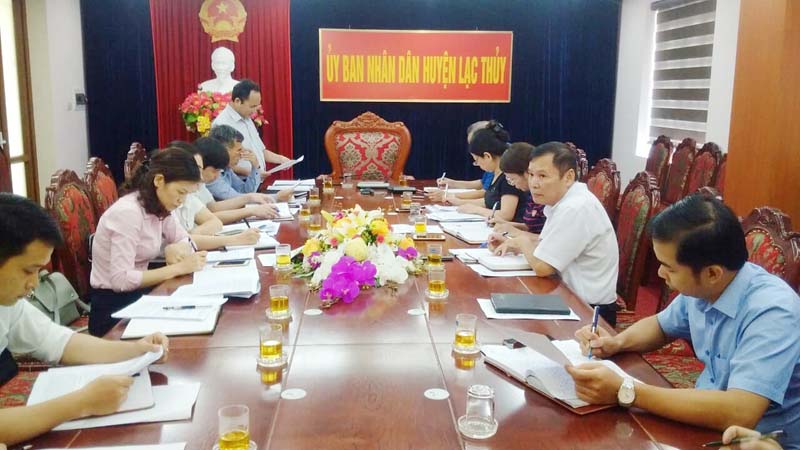


(HBO) - Representatives of the Steering Committee for Collective Economic Development of Hoa Binh province had a working session with the People's Committee of Lac Thuy district on collective economic development in the district.
 Representatives of
the provincial Steering Committee for Collective Economic Development on their
working trip to Lac Thuy district.
Representatives of
the provincial Steering Committee for Collective Economic Development on their
working trip to Lac Thuy district.
Lac Thuy district is home to 27 cooperative groups, 26 of them are general business cooperative groups, and one specialising in manipulating ornamental stone.
The district has 38 cooperatives operating under the 2012 Cooperative Law, including 32 agricultural service cooperatives, three handicraft cooperatives, two transport service cooperatives, and one trade and service cooperative.
The total number of members and employees of the cooperatives is about 1,167. The per capita income in handicraft and trade cooperatives is about 5 - 7 million VND per month; in agricultural service cooperatives ranging from 1.8-2 million VND per month.
The total revenue of cooperative groups is estimated at 675 million VND, the average revenue of each cooperative group is 25 million VND, while the average profit of each cooperative group reaches 12.5 million VND.
Meanwhile, the total revenue of the cooperatives reaches 14.5 billion VND, the average revenue of each cooperative is estimated at 381.5 million VND and the average profit of each cooperative is 58.2 million VND.
In 2019, Lac Thuy has built priority programmes, projects and plans on developing agricultural cooperatives which applying high technologies in producing and consuming farm produce. The certification of Lac Thuy chicken brand will be announced.
Attention has been paid to deploying production value chain of chili and Paro onion; mobilizing and calling big firms to join cooperatives to organise agricultural production in value chains.
The district’s authorities have also worked to provide information; consultation on building regulations, production and business plans, and training courses on legal regulations and implementing contents related to converting cooperatives and establishing new cooperatives in line with the 2012 Cooperative Law; training for cooperative managers, professional staff working on the collective economic sector./.